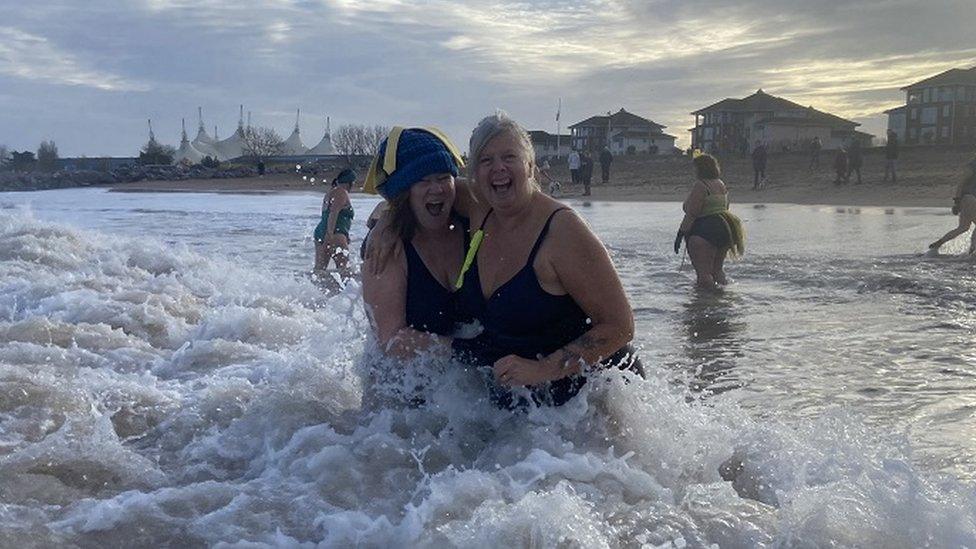Doctors take on charity ice swim in polar regions
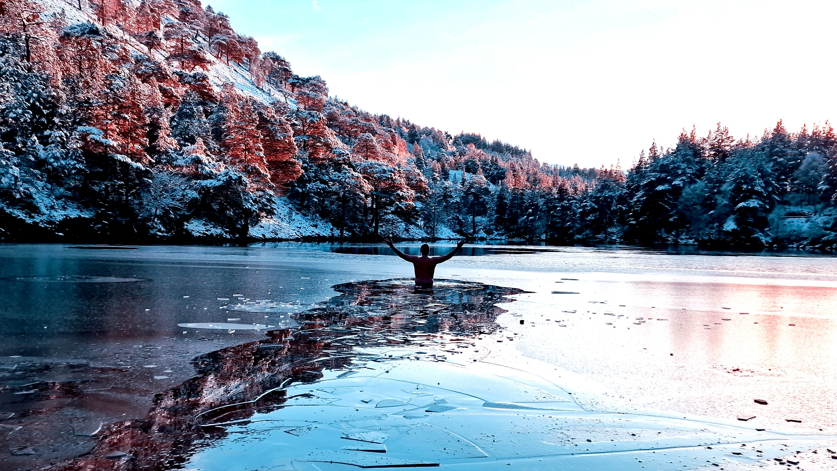
The sport involves swimming in water of five degrees Celsius or below, unassisted, with only a standard swimming costume, a silicon cap and a pair of goggles.
- Published
Two doctors are risking hypothermia and predators to swim a kilometre in the ice-cold waters of the Arctic and Antarctic.
Adam Baker and Charlie Fleury, who are raising money for Somerset charity Weston Hospicecare, are no strangers to extreme challenges, having already rowed across the Atlantic.
The pair, who work at the Royal Devon and Exeter Hospital, have been endurance training for the Ice Kilometre swim for months.
"There's no wetsuit, there's no lard, there's no grease. It's just you against the perishingly cold water," Ms Fleury said.
The Arctic swim takes place on 30 September and the pair, who are husband and wife, will then travel to Antarctica in mid-November.
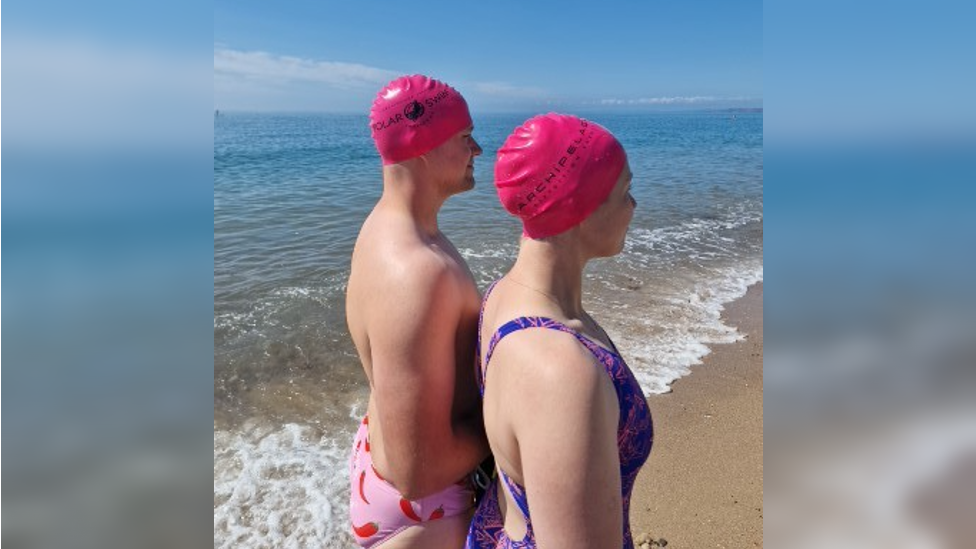
During their latest challenge, the couple hope to raise money for Weston Hospicecare and the Ocean Conservation Trust.
The term "ice swimming" was first coined in 2009 when the International Ice Swimming Association (IISA) was set up to help ensure the safety of swimmers tackling exceptional temperatures.
The sport involves swimming in water of five degrees Celsius or below, unassisted, with only a standard swimming costume, a silicon cap and a pair of goggles.
"For our Arctic Circle swim, the water temperatures are predicted to be between two and four degrees C and then our Antarctic swim is likely to be between minus one and nought degrees C," Mr Baker told BBC Somerset.
"So there is a potential chance that it could go below nought just because that freezing point can change with the salt content of the water.
"The biggest risk is the initial immersion and cold water shock. Something called autonomic conflict can send your heart into funny rhythms."
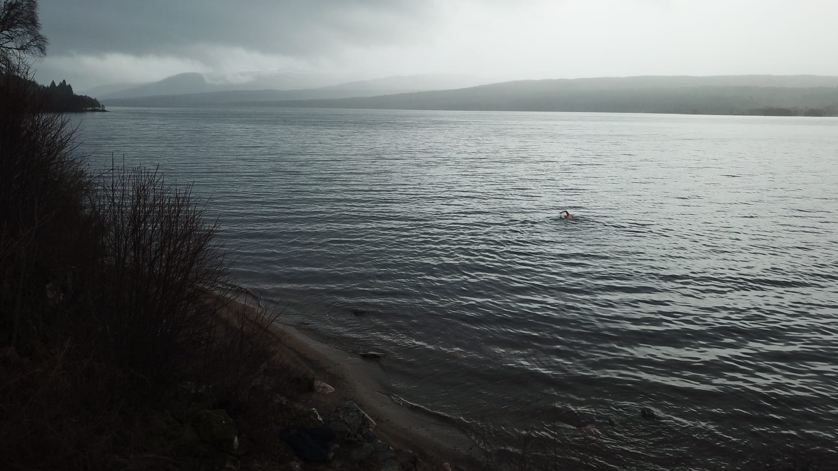
Training for ice swimming involves acclimatising the body to very cold water as the biggest risk is the initial immersion
Adapting to the cold
Ms Fleury said the training had two aspects - physical and mental.
"First, we have been looking at our swimming strokes to get as fast as possible in the water and obviously the adaptation of your body to cold water," she said.
"But, I think one of the hardest things actually is the mental toughness.
"Putting your body and mind through those tough moments when you really don't want a cold shower or to get in the ice bath that's sitting around three degrees."
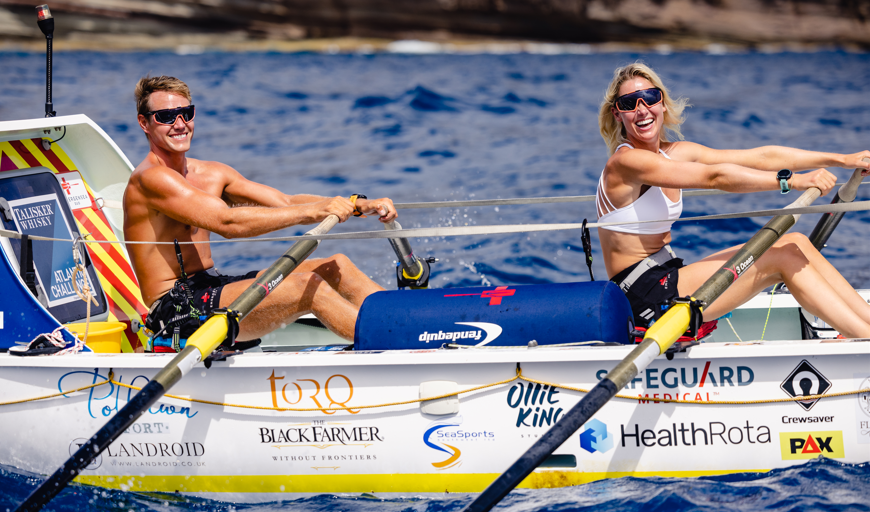
Adam Baker and Charlie Fleury rowed across the Atlantic in 2022
In 2022 Mr Baker and Ms Fleury spent 51 days at sea, rowing 3,000 miles (4,828 km) across the Atlantic Ocean.
Since then, the couple has also completed a partial circumnavigation of more than 1,600 miles (2574 km) around Great Britain.
"You have to have that belief in yourself to even get to the start line because when you tell people about these challenges, they say, 'Oh my goodness, you're mad, that sounds impossible'," said Ms Fleury.
During their latest challenge, they hope to raise money for Weston Hospicecare and the Ocean Conservation Trust.
"It would be absolutely fantastic to see some wildlife at the same time as swimming," said Ms Fleury.
"Polar bears, leopard seals, penguins or orcas - that would be extremely special.
"We're both huge advocates for the ocean, and everything that lives in it."
Follow BBC Somerset on Facebook, external and X, external. Send your story ideas to us on email or via WhatsApp on 0800 313 4630.
Related topics
- Published12 February 2023
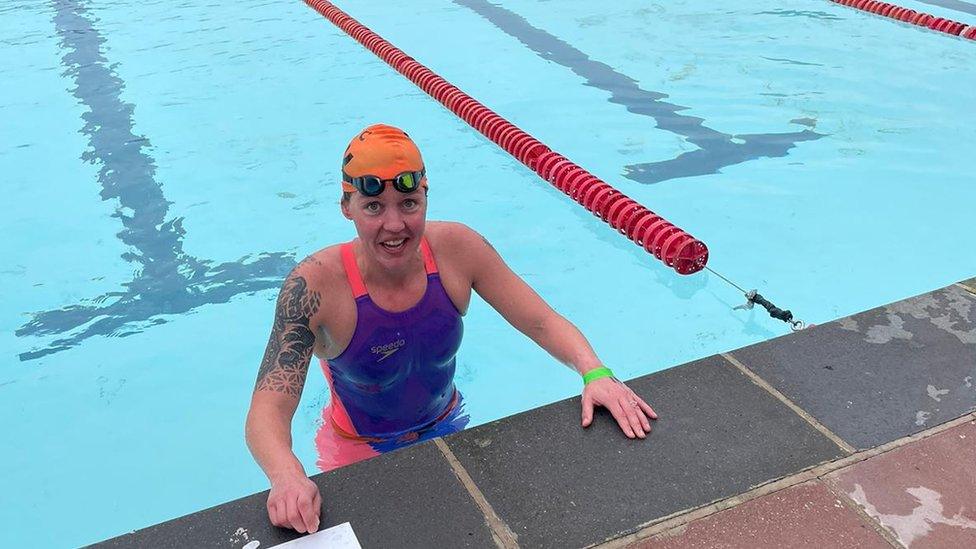
- Published3 January 2023
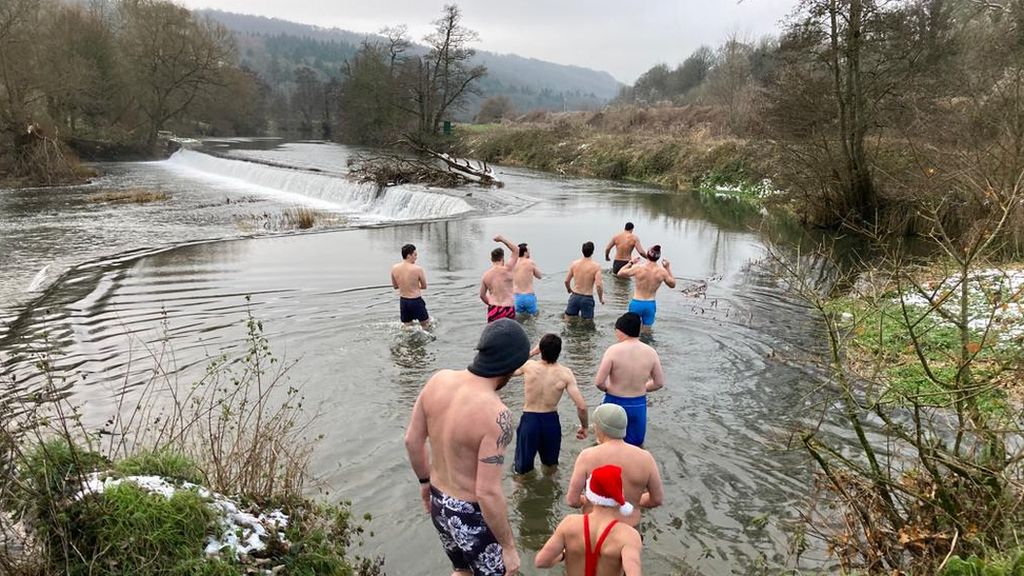
- Published1 January 2024
